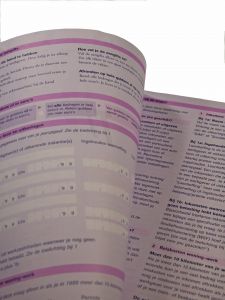Joint Bank Accounts in New Jersey
 It is a fairly common practice for people to open joint bank accounts. Often joint accounts are held by spouses, and the funds do actually belong to both individuals. However, sometimes these accounts are opened for the convenience of allowing a child or to access funds and write checks to pay bills, or as a way to have ownership of the funds pass to the surviving joint account holder upon death. While this is an effective and simple way to give someone else control of your assets of have the funds pass to another upon death, there are problems associated with joint accounts which should be considered before opening a joint account.
It is a fairly common practice for people to open joint bank accounts. Often joint accounts are held by spouses, and the funds do actually belong to both individuals. However, sometimes these accounts are opened for the convenience of allowing a child or to access funds and write checks to pay bills, or as a way to have ownership of the funds pass to the surviving joint account holder upon death. While this is an effective and simple way to give someone else control of your assets of have the funds pass to another upon death, there are problems associated with joint accounts which should be considered before opening a joint account.
1) The joint account holder has unfettered access to the funds in the account. There is no oversight over the way the funds are used. Both joint account holders can utilize the funds for any reason; there is no need for permission – either account holder can withdraw of any portion or all of the money in the account for any purpose.
2) A joint bank account is at risk from legal actions by the creditors of either account holder. If the joint account holder has a judgment entered against her, all the funds in the joint bank account can be attached and used to pay the judgment. For example, a one account holder gets divorced and his spouse claims a right to some of the funds in the account, then the account holder who deposited the funds in the joint account would need to go to court to prove that the money does not belong to the divorcing account holder. Another example is if the other joint account holder is sued, loses and does not pay the resulting judgment.
3) Upon the death of either account holder, the money would indeed pass to the surviving joint account holder. However, the money remains subject to estate and inheritance taxes. If the individual who passes is not the individual who contributed the funds to the account, the account would nonetheless be taxed as part of the deceased account holder’s estate. In other words, the survivor would have to pay inheritance tax even if she deposited the funds in the first place. Depending on the amount of assets in the account, the relationship between the two joint account holders, and the value of the decedent’s total estate, this can result in a significant death tax burden which could have been avoided.
Continue reading
 New Jersey Lawyers Blog
New Jersey Lawyers Blog







